-
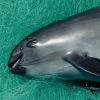 +15 +1
+15 +1Before Vaquitas Vanish, a Desperate Bid to Save Them
In the shallow sea waters of the Gulf of California swims a porpoise that few have seen, its numbers dwindling so fast that its very existence is now in peril. Known mostly by its Spanish name, the snub-nosed vaquita is the world’s smallest cetacean, a miniature porpoise with a cartoonlike features and dark smudges around its eyes. The species lives only in the fertile waters of the gulf’s northern corner. The size of its population has always been precarious, but now voracious demand in China for a fish that shares the vaquita’s only habitat has pushed the tiny porpoise to the brink of extinction.
-
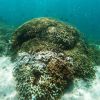 +1 +1
+1 +1Scientists Race to Prevent Wipeout of World's Coral Reefs
There were startling colors here just a year ago, a dazzling array of life beneath the waves. Now this Maldivian reef is dead, killed by the stress of rising ocean temperatures. What's left is a haunting expanse of gray, a scene repeated in reefs across the globe in what has fast become a full-blown ecological catastrophe.
-
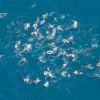 +24 +1
+24 +1Humpback whales are organizing in huge numbers, and no one knows why
The world is ending and only the whales know. At least, that’s one explanation. Humpback whales are normally pretty solitary—scientists used to call groups of 10 to 20 “large.” Now they’re congregating in groups of 20 to 200 off the coast of South Africa. Something is definitely going on here, but so far experts are stumped.
-
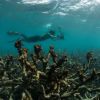 +18 +1
+18 +1Great Barrier Reef obit maybe not so premature
ENVIRONMENT -- I took a lot of grief and criticism in October from around the world, perhaps not totally undeserved, for promoting an obituary for the Great Barrier Reef. This week, the science journal Nature and The New York Times are suggesting the notion isn't...
-
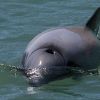 +22 +1
+22 +1Oil drilling in Maui dolphin habitat threatens species
There are fears a decision to allow oil drilling off the Taranaki coast could spell disaster for New Zealand's rare Māui dolphins. Thirty-five percent of the dolphins' habitat is to be opened up to exploration, and Green Party MP Gareth Hughes says it's a reckless move. "We're talking about more than 2000km squared. We know that the seismic surveys, the oil rigs, the risk of oil spills could be catastrophic for the species.
-
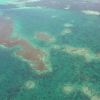 +32 +1
+32 +1'Devastating' coral loss in South China Sea
Scientists are warning of another "devastating" loss of coral due to a spike in sea temperatures. They say 40% of coral has died at the Dongsha Atoll in the South China Sea. Nothing as severe has happened on Dongsha for at least 40 years, according to experts. Anne Cohen of Woods Hole Oceanographic Institution in Massachusetts, US, said the high water temperatures of 2015/16 were devastating for reef systems globally, including Dongsha.
-
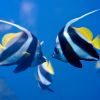 +11 +1
+11 +1Pescatarians warned they are eating 'sentient animals' who form friendships, after landmark study on fish
Fish are sentient animals who form friendships, experience “positive emotions” and have individual personalities. That, according to the Royal Society for the Prevention of Cruelty to Animals (RSPCA), is the implication of a landmark new study which found zebrafish are social animals in a similar way to humans and other mammals.
-
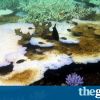 +44 +1
+44 +1Great Barrier Reef at 'terminal stage': scientists despair at latest coral bleaching data
‘Last year was bad enough, this is a disaster,’ says one expert as Australia Research Council finds fresh damage across 8,000km.
-
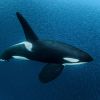 +39 +1
+39 +1Killing of Orcas in Front of Tourists Could Spell End of Whaling for Island Nation
Two orcas harpooned in front of a group of whale watchers puts a spotlight on St. Vincent's controversial whaling practice. Moments before it happened, Ken Isaacs, a crew member on a whale-watching vessel, realized the tourists on his boat were about to witness something terrible. While touring open water around the small Caribbean island of St. Vincent, the crew spotted a pod of four orcas, also known as killer whales, breach the water's surface. As the tourists delighted at seeing orcas in the wild, Isaacs frantically shouted at three fisherman who were approaching in a small craft.
-
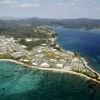 +26 +1
+26 +1Japan environment ministry drafts emergency declaration over rising deaths of coral
Japan's environment ministry has drafted an emergency declaration over rising coral deaths in waters surrounding the country. Following a meeting of dozens of top environmentalists, the ministry expressed concerns that the corals could be extinct by 2070. To reduce the decay of coral reefs, the ministry has proposed a series of initiatives, including the development of new technologies to cultivate and transplant corals in various locations.
-
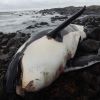 +8 +1
+8 +1UK killer whale died with extreme levels of toxic pollutants
One of the highest concentrations of toxic pollutants ever recorded in a marine mammal has been revealed in a Scottish killer whale that died in 2016. The adult whale, known as Lulu, was a member of the UK’s last resident pod and a postmortem also showed she had never produced a calf. The pollutants, called PCBs, are known to cause infertility and these latest findings add to strong evidence that the pod is doomed to extinction.
-
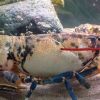 +14 +1
+14 +1'One-in-a-million' white lobster caught near 'magic' beach which reappeared after 33 years
A rare white lobster has been caught off the coast of Achill Island and given a new home in the local aquarium - shortly after a beach on the island reappeared after 33 years. The 'one-in-a-million' albino crustacean was caught by local fisherman Charlie O'Malley. Speaking to the Mayo News, he said: "I was hauling in a string of pots, and up came a white lobster, and I knew it was an unusual find because I have been fishing for the last 25 years. I’ve heard of them but never actually seen one of them before."
-
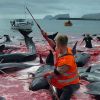 +15 +1
+15 +1Sea Shepherd Wants Denmark Held Accountable for Whale Slaughter
Sea Shepherd Netherlands has officially submitted a request to the European Commission to launch infringement proceedings against Denmark for facilitating the slaughter of pilot whales and other cetaceans in the Faroe Islands. The organization says it has the formal support of 27 Members of the European Parliament.
-
 +30 +1
+30 +1Unexpected Nazi-era legacy: Fish tumors
Scientists have found a high rate of tumors in flatfish in the Baltic Sea that could be linked to old munitions. Weaponry dumped in the sea at the end of World War II is leaching chemicals toxic to fish - and people.
-
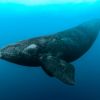 +17 +1
+17 +1In Unprecedented Loss, Endangered Whales Die of Mysterious Cause
When six massive endangered animals turn up dead in the span of a few weeks, conservationists do everything they can to find out why. Although they seemed otherwise healthy, the North American right whales were all recently found dead in the Gulf of St. Lawrence in Canada. Now, Fisheries and Oceans Canada, the Marine Animal Response Society, the Canadian Coast Guard, and others are working together to find out why the whales died.
-
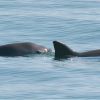 +22 +1
+22 +1Vaquita porpoise: Dolphins deployed to save rare species
Mexico's government says it plans to use dolphins trained by the US Navy to try to save the world's most endangered marine species, the vaquita porpoise. Environment Minister Rafael Pacchiano said that the dolphins would be deployed to locate and herd vaquitas into a marine refuge. Mexico also permanently banned fishing nets blamed for the vaquitas' decline.
-
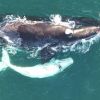 +11 +1
+11 +1A Rare White Calf Is Spotted During Right Whale Baby Boom
Save the whale campaigns in and around Australia have existed for years. Globally, they remain very popular. Illegal whaling, as well as the impact of oil refinery at sea has made it a hot topic for environmental agencies for decades.
-
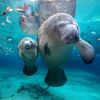 +15 +1
+15 +1Manatees are no longer endangered species
They may not be much to look at, but bless them, they’re lovable and even weirdly cute. They’re manatees and they’ve had a pretty tough time of it recently. But finally, these aquatic ‘sea cows’ have some good news to celebrate. They’re no longer an endangered species. Manatees were actually one of the very first species of animals to be listed on the Endangered Species Protection Act of 1966. Alongside American alligators, whooping cranes, red wolves and grizzly bears. And it’s been a tough ride for them ever since.
-
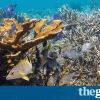 +1 +1
+1 +1Spectacular rebirth of Belize's coral reefs threatened by tourism and development
Just below the surface of the turquoise sea, coral flutters majestically amid schools of puffed up porcupinefish and fluorescent blue and yellow angelfish. The gangly staghorn and fanning elkhorn corals are thriving in swimming distance of Laughing Bird Caye, a tiny Caribbean sandy islet in southern Belize, thanks to a restoration project that is yielding striking results.
-
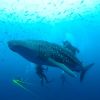 +17 +1
+17 +1Shark fins sold for soup include many at-risk species
Shark fins and manta ray gills found for sale in stores and markets in Vancouver and in China just a few years ago belonged mainly to species that are now listed as at-risk and banned for trade, DNA testing shows. Researchers led by Dirk Steinke at the University of Guelph found that 71 per cent of more than 100 samples tested belonged to species that are considered at risk of extinction, including the whale shark, the largest fish in the world. It has been listed as "vulnerable" by the International Union of Conservation since 2003.
Submit a link
Start a discussion




















